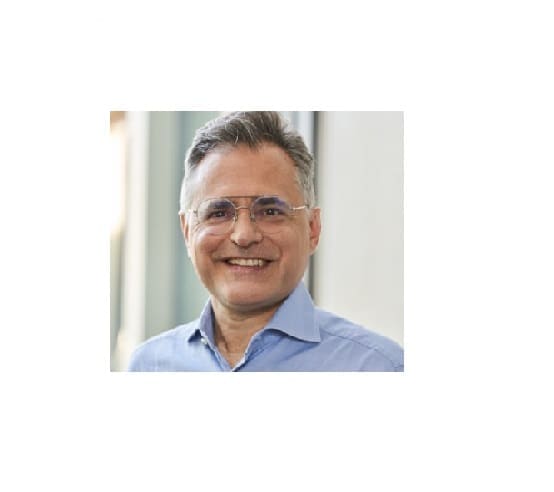Dedalus Accelerates Research and Healthcare collaboration
Four Pillars provide the gateway to quality data for better patient care.
by Andrea Fiumicelli & Koenraad Batselier
Tackling the Tipping Point
Healthcare has reached a tipping point, propelled by both opportunities and challenges. The combination of an abundance of data, an acceleration of transformative yet costly innovation and unsustainable expenditure in every market requires progressive solutions that improve clinical care and delivery for patients.
These solutions need to cater for all stakeholders: for overburdened healthcare systems, for innovative life sciences companies seeking to develop therapies more efficiently, and for clinicians who struggle to find and assess the information they need to engage with and empower their patients and to conduct research.
Added to this mix are changing patient expectations. Today’s patients, or consumers, expect to be engaged in their healthcare and to be included in the conversation about the delivery of clinical care.
Stakeholders need data to achieve their objectives, but they also need this information or data to be provided in the right context, at the right time, and with the right level of connectedness. That means any solution must pay attention to: broad, deep and trusted data sets; regulatory compliance and privacy constraints; automation and simulation; and the ability to exchange data safely with collaborators. Furthermore, it must ensure data is managed in a way that addresses the needs and expectations of patients.
Building a Bridge to Trust and Value
These industry pressures and concerns have been top-of-mind for Dedalus as the company has gone through growth and transformation. The business has assessed how it can best serve industry stakeholders and patient needs to accelerate and improve the discovery of new drugs, diagnostics, and devices and support healthcare professionals as they treat patients and conduct research. As a global leader in healthcare IT systems with a large footprint, Dedalus has reached a point in its evolution where its commitment, knowledge and portfolio could be leveraged to accelerate innovation and collaboration across the life sciences and healthcare markets.
Dedalus acts as a trusted and meaningful bridge between its large customer base of healthcare providers – hospitals, primary care networks, labs, pathology networks, etc. – and life sciences companies to help accelerate the product lifecycle as well as with the agencies and payers who are instrumental in enabling access to new therapies. The struggle for companies typically begins at the clinical phase with finding patients, recruiting them for clinical trials, and designing trials and continues through to market identification and product stratification.
Dedalus offers a gateway solution that allows stakeholders to look for and make use of critical health data that can assist in identifying patients, establishing the right trial design, or determining the market value and positioning of their products. At the same time, that data remains in the hands of the data providers – the hospitals and laboratories – ensuring it is safeguarded and privacy protected. The curators of the data decide what kind of data they are willing to share, how and with whom. What the end user sees is a unified data set which they can use for the purposes identified across the life cycle of a product.
Four Pillars to Value
Designed around the Dedalus proposition of “Together 4 Success” the four key principles or pillars to the gateway solution respond to the challenges that can hinder progress and add to costs to product development. Importantly, these pillars ensure better data support and management to improve the delivery of clinical care to patients, putting the true customer – the patient – at the centre.

Access to trusted data
Thanks to a vast network of healthcare customers, including hospitals and lab networks, across multiple geographies, Dedalus can provide life sciences companies with the first key pillar – data access. In addition to this deep and broad set of data sources, the company’s established healthcare pedigree ensures the data is high quality. To ensure the data is useful and understandable to the end user, Dedalus normalises the data, quality assures it and makes it clinically meaningful by augmenting it with metadata. Since the systems from which the data is drawn are owned by Dedalus, the company is best placed to understand how healthcare customers are using or even misusing them.
Access to curated, in-depth data benefits not only life sciences companies but also clinicians who are looking to conduct research into current therapies and access real-world evidence about use of such therapies. Lack of access is often a source of frustration for clinicians, who are documenting this RWE from their own observations yet often struggle to synthesise the data within systems in order to gain useful insights for their practice and for their research. Dedalus ensures clinicians have access to more extensive data sets at the point of care to help them make better-informed choices for their patients.

Compliance and privacy
The healthcare industry is highly regulated. Clinical research has always been tightly controlled, but with the introduction of the Clinical Trial Regulation in Europe, tighter rules will be in place to ensure the safety of patients, greater consistency of rules around conducting clinical trials in the EU and increased transparency of trial information. Once a product is on the market, companies often are required to carry out post-authorisation safety studies (PASS) to evaluate the safety and benefit-risk profile of their product.
Companies must also safeguard patient privacy and adhere to requirements established under the General Data Protection Regulation.
Dedalus has established processes that keep all stakeholders safe when collaborating around healthcare data. This is achieved by obfuscating patient information so data is completely anonymised and ensuring full traceability of the information back to the source from which it originated. Dedalus also helps to manage the consent workflows, not just from the hospitals where the data is stored but also from the clinicians who contributed to the research and observations, and the patients, who are the true owners of the data. The Dedalus platform is designed to enable the various stakeholders to determine the amount of data or the type of data they are willing to share.

Automation and simulation readiness
Clinical research is a very laborious activity. Much time is spent manually going through patient records, looking for relevant data and insights. Lack of standardisation and the challenges with unstructured medical data mean a lot of time is spent going through the data to make sense of it.
To streamline the process and create efficiencies for customers, Dedalus automates these activities wherever possible, not only through automated data preparation, but also using artificial intelligence to assess and uncover unstructured data, such as a doctor’s note within the patient record, or a nurse observation made while administering medication. This gives customers assurance about the quality and completeness of data sets, and potential real-time insights derived from the data. By automating access to these types of unstructured data sources and applying AI and technologies such as natural language processing to uncover insights, the time and cost involved in accessing curated data in real time is significantly reduced.

Collaboration
The Dedalus gateway solution not only taps into a broad network of data sources but also enables different users to connect and collaborate. This might be a collaboration between peers, such as neighbouring hospitals or hospitals that are part of a broader network, or a collaboration between different organisations in the same research areas, such as cancer or Alzheimer’s.
Dedalus’ gateway solution enables the exchange of enriched, curated and normalised data sets either between research institutions or externally with potential partners, such as life sciences companies. At all times, however, the data providers, typically the hospitals, retain control of the data and decide what level of data they are willing to share. For example, a non-teaching hospital might have interesting patient data to contribute to research, or a teaching hospital that is conducting research might be looking to broaden its data sources or work with partners in similar areas. Given the challenge all researchers have with finding study subjects or patients to gather deep enough insights, the ability to collaborate is crucial for all stakeholders.

Accelerating research
With the costs of product development combined with the unsustainable burden on managing healthcare weighing heavily on all companies and countries, the need for broad, collaborative yet secure ways to access and exchange data is key to future progress. The Dedalus gateway is fully compliant with the regulations, leverages data from multiple sources globally and offers capabilities designed to make sense of the data and speed up the process of collating information. In so doing, life sciences companies and clinical researchers will be able to speed up their processes, resulting in shorter timelines to discovery, research and submission and better treatments for patients. Ultimately, the true end user – the patient – benefits when quality, meaningful data and evidence are made available to clinicians and innovators.

About Andrea Fiumicelli
With a long experience in the clinical ICT sector and a strong background of top positions held in important international companies, Andrea Fiumicelli will lead the Group through a further phase of European and worldwide development and consolidation.
Dedalus, also thanks to the integration of the Agfa division, is providing the market with tools and methods able to strongly accelerate the digital transformation of clinical activity and consequently the efficiency of healthcare systems.

About Koenraad Batselier
Koenraad Batselier is leading Dedalus’ Life Sciences Business Unit.
Koenraad joined Dedalus in 2020 through the acquisition of Agfa-Gevaerts Healthcare Information Systems business, where he was a member of the team leading the carve-out. He holds 25 years of experience in healthcare IT leadership roles across Europe, Asia-Pacific and South-America.